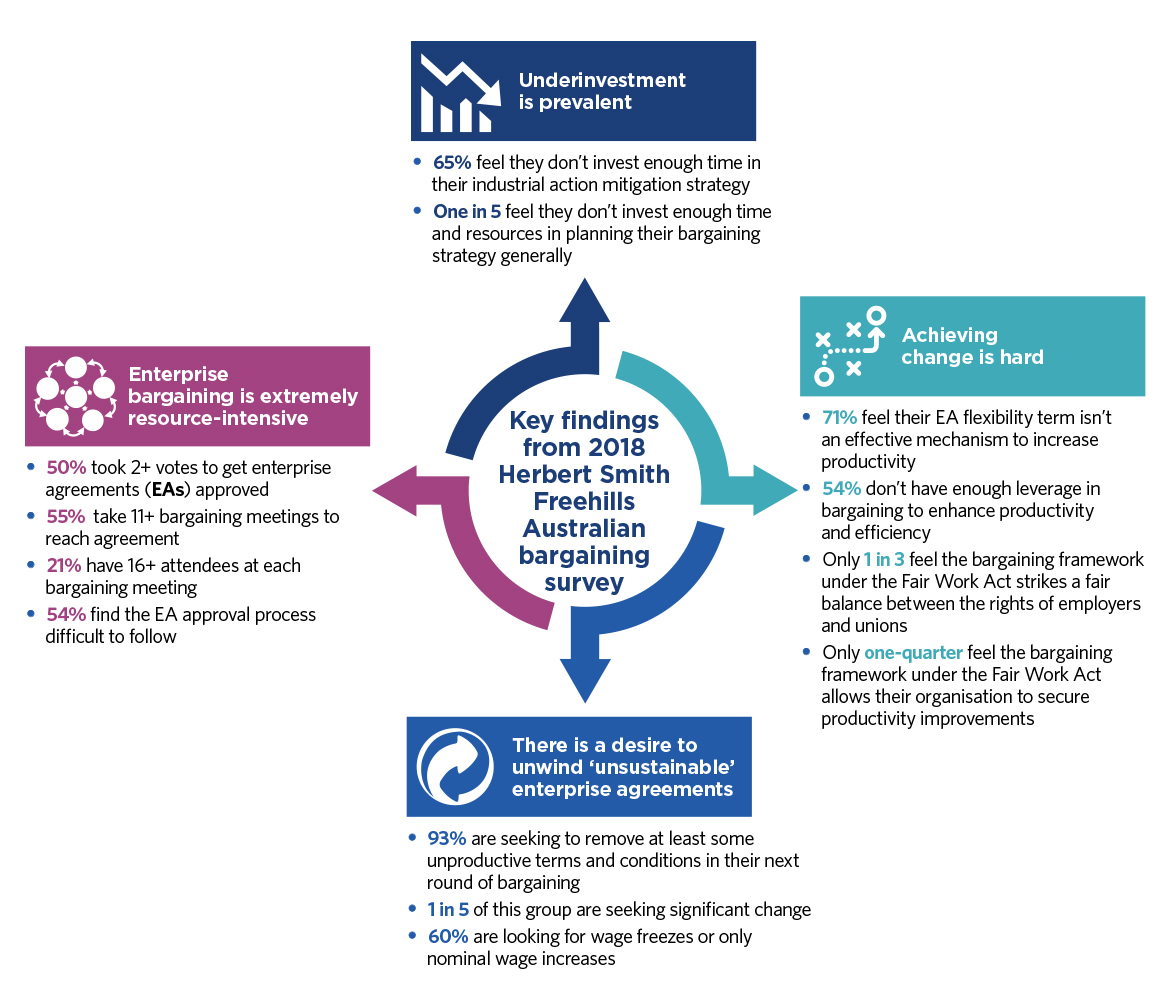Stay in the know
We’ll send you the latest insights and briefings tailored to your needs
Herbert Smith Freehills has published the second volume of the unprecedented Guide to Enterprise Bargaining under the Fair Work Act.
The Fair Work Act brought significant change to Australia’s collective bargaining regime, introducing new concepts (e.g. scope orders) and re-introducing the obligation to bargain in good faith.
Nine years on, it is apparent that:
Whilst the current bargaining regime makes achieving change (or ‘unwinding’ unsustainable terms and conditions) difficult, it is certainly not impossible.
Those that prepare early, and have a detailed knowledge of the bargaining framework and its underpinning case law, will have a significant advantage, and will achieve better outcomes.
But developing a successful enterprise bargaining strategy for an employer is not easy, particularly for those looking to achieve change. There is no ‘template’. It can only be done with careful and meticulous planning, having regard to operational objectives, the business’ appetite for risk, the paths to obtaining and reducing bargaining leverage, the legal boundaries, listening and understanding what employees want, and, most importantly, experience. These are the building blocks of an enterprise bargaining strategy.
To assist our clients in building and implementing their bargaining strategies, Herbert Smith Freehills has recently published the 2018 edition of its legal guide “Bargaining under the Fair Work Act”.The Guide provides a comprehensive and practical overview of the Australian collective bargaining regime.
It includes a comprehensive commentary of relevant legislation , and analyses over 1700 decisions of the Fair Work Commission and the Courts handed down between 1 July 2009 and 31 December 2017.
Whilst the resources invested in the production of the Guide were significant, the Guide demonstrates the significant expertise that Herbert Smith Freehills is fortunate enough to have access to through its talented team of lawyers.
Click on the Download button above to discover an overview of the Bargaining under the Fair Work Act Legal Guide 2018.
In launching the Guide, we have also released the results of the second HSF Bargaining Survey, looking at the industrial relations landscape from the perspective of some of the firm’s key clients. The results show that enterprise bargaining remains extremely resource-intensive, many employers are looking to unwind agreement conditions that have become unsustainable, yet achieving such productivity improvements and other meaningful change is difficult.

We are helping many of our clients in working through these challenges and welcome a discussion with you should you require any assistance.
This Guide and survey results are subject to a limited release to clients of Herbert Smith Freehills who engage the Employment, Industrial Relations and Safety team to assist with their bargaining rounds.
If you have any questions, or would like to discuss your bargaining round with us, please contact Rohan Doyle or Wendy Fauvel or your usual Herbert Smith Freehills’ contact.
The contents of this publication are for reference purposes only and may not be current as at the date of accessing this publication. They do not constitute legal advice and should not be relied upon as such. Specific legal advice about your specific circumstances should always be sought separately before taking any action based on this publication.
© Herbert Smith Freehills 2025
We’ll send you the latest insights and briefings tailored to your needs